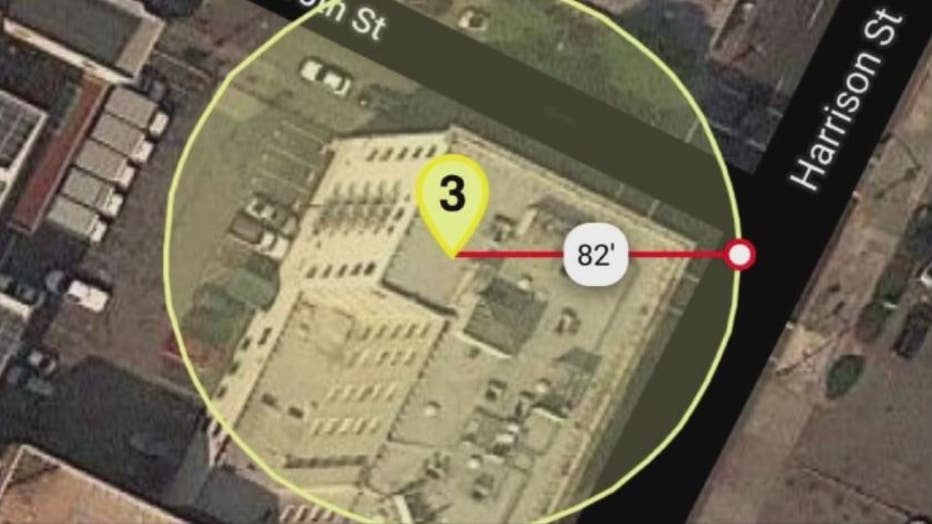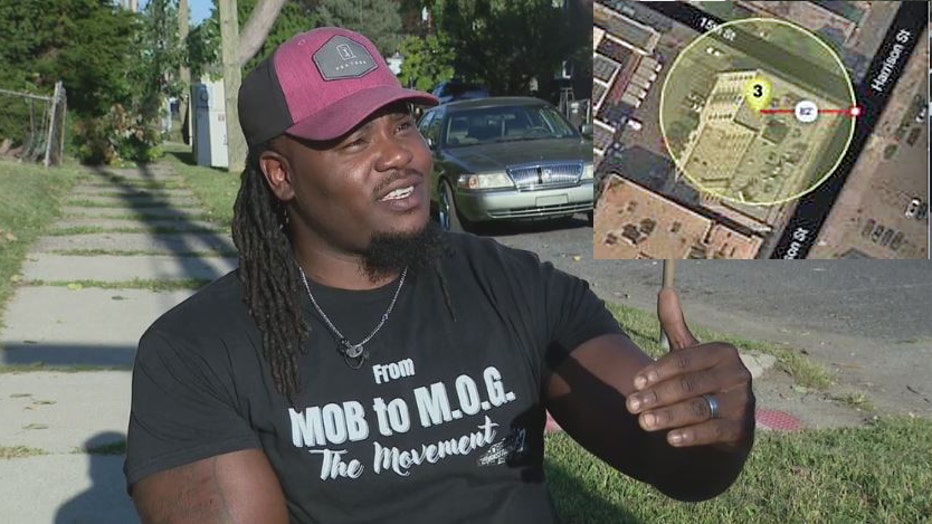While debate over Shotspotter rages, Detroit gun violence victim supports the technology
Public forum debates invasiveness with security of Shotspotter technology
A forum by Detroit Police Commissioner Willie Burton on Shotspotter technology was held Thursday downtown.
DETROIT (FOX 2) - The city of Detroit is considering investing more into Shotspotter technology but while advocates say it will make the streets safer, critics aren't sold.
Resident Terrance Pope knows the bitter reality of gun violence all too well and he’s one of many in support of Detroit addressing it with a bigger investment into Shotspotter.
"I was shot four in the back, three in the leg," he said. "I think it will help decrease the (crime) rate. I think it will be a lot more effective that police will be able to respond a lot more effectively."
Detroit Police Commissioner Willie Burton convened a public forum on Shotspotter which picks up and pinpoints the sound of gunfire, allowing police to respond faster.
"What brings us here is to have a discussion," Burton said.
Detroit Mayor Mike Duggan says it would have been a game changer when a gunman went on a rampage nearly two weeks ago, randomly shooting four people and killing three of them.
"Had the Detroit police had a Shotspotter notice at 4:45 on a Sunday morning - a mile and a half from the 12th Precinct, police officers would have been on that site immediately at a time where the police had an advantage," Duggan said.
Right now Detroit has two Shotspotter units on the east and west sides of the city.
The Detroit City Council is considering spending roughly $7 million on more units and expanding the program citywide.
Critics say that money could be better spent.
"If we are serious about public safety in our community, we should be attacking the root causes and doing things like keeping people in their homes with those millions of dollars," said Phil Mayor, senior staff attorney for ACLU Michigan. "(It) is a way more effective use of money than follow cities like Chicago that have spent tens of millions of dollars on Shotspotter technology and their own inspector general conclude it yields no results."

DPD says Shotspotter areas have 27 percent less gun crimes.
But Peter Rhodes, policy analyst for Councilwoman Angela Whitfield Calloway, says the Shotspotter on the city’s west side has only led to 21 arrests out of more than 1,300 police runs from March 2021 to July 2022.
"So that is less than a two percent success rate on Shotspotter out of that precinct," said Rhodes, adding that is why Calloway will be voting no. "That $7 million could be used on other things."
"This has been a pattern with the City of Detroit," said Eric Williams of the Detroit Justice Center. "I think it is because they want to show that they are doing something and people like technology. But this is a technology that has been shown, time and time again, and city after city, to be an expensive boondoggle."
Terrance Pope was left paralyzed after he was shot seven times 11 years ago.
"Once you invest money into these other things in the city, you can't live comfortably if the crime rate is up," Pope said.
He says the Detroit police's quick response is the only reason he’s alive today - and if more Shotspotter units were erected across the city, cops could better respond to shootings, solve more cases, and save more lives.
"I’ve lost a lot of friends whose murder cases still haven’t been solved," Pope said. "Guys found in vacant homes and in vacant fields dead because I feel ... the police didn't arrive or hear the gunshots, and had to find the bodies two or three weeks later."
City Council's Public Health and Safety Committee meets Monday and it could recommend to the full council to vote on expanding Shotspotter Tuesday.

Gun violence survivor Terrance Pope, inset: Shotspotter sample screen.

